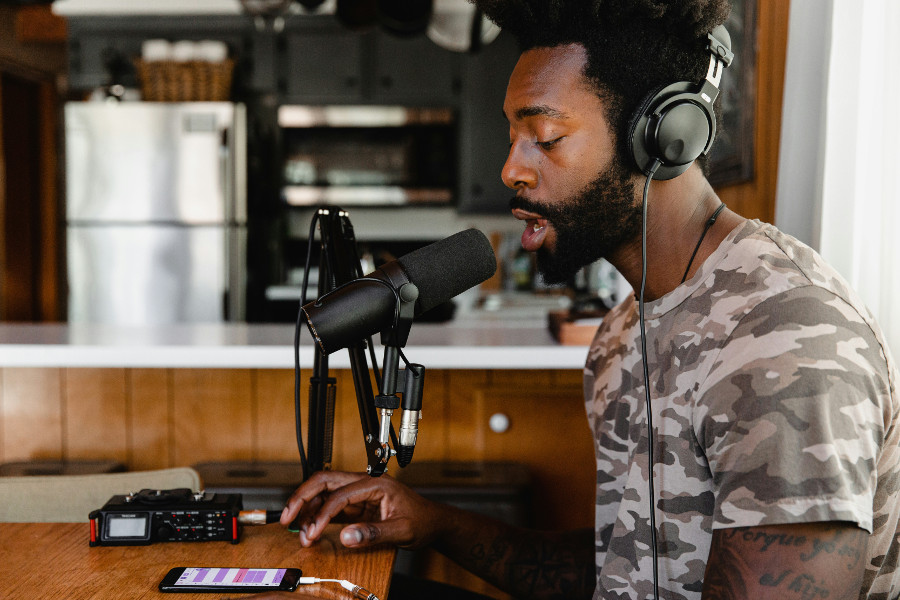How to Get into Singing: Essential Tips About Taking Singing Lessons
If you're considering taking singing lessons, you probably have a lot of questions. Whether you're a complete beginner or looking to refine your technique, understanding what to expect and how to make the most of your lessons is key. In this guide, we’ve gathered 15 frequently asked questions about taking singing lessons, covering everything from costs and finding the right teacher to improving your vocal range and breath control. Read on to get all the answers you need to start your singing journey with confidence!

How much do singing lessons cost?
The cost of singing lessons can vary, depending on where you are and who you’re learning from. On average, private lessons will run you anywhere from $30 to $100 per hour, though if you’re in a big city or working with a well-known teacher, you might see prices even higher. Group lessons, on the other hand, are usually more affordable, ranging from $10 to $50 a session. Online lessons might also offer a more budget-friendly option, while still providing you with great feedback. But no matter the price, investing in lessons is a valuable step toward nurturing your voice and reaching your musical goals.
How do I find a good singing teacher?
Finding a good singing teacher isn’t just about picking someone with a great voice. Sure, a teacher who knows their stuff is important, but what’s more important is finding someone who can guide you in the right direction and help you build proper technique. Start by asking for recommendations from friends or searching online reviews. A solid teacher will be experienced and skilled in vocal techniques, while also being supportive and patient. If possible, try out a lesson first to see if you vibe with their teaching style. The right teacher can truly help you unlock your voice.
What should I expect during my first singing lesson?
Your first singing lesson will likely start with some introductions and a quick chat about your goals. Your teacher will want to understand where you’re starting from, whether you have any experience, and what you’re hoping to achieve. Expect some basic vocal exercises to warm up your voice and get a feel for your range. They might also introduce you to concepts like posture and breath control. It’s an exciting beginning, where your teacher will help you understand how your body and voice work together. From there, you’ll build a foundation to start developing your singing technique.
Can I learn to sing without any experience?
Absolutely! You don’t need any prior experience to start learning how to sing. Voice lessons are specifically designed to help you learn and grow, regardless of your starting point. Your teacher will guide you through the basics, teaching you essential techniques like breath control, pitch accuracy, and posture. As you build confidence and practice consistently, your voice will start to improve. Remember, everyone has their own learning pace, but with patience and dedication, you’ll be amazed at how much progress you can make.
Here are a few Youtube channels for voice lessons, vocal training, singing lessons:
- Jeff Rolka
- Chris Liepe
How long does it take to improve my singing?
How long it takes to improve your singing really depends on where you start and how much effort you put in. For most people, noticeable improvement happens within a few weeks or months of consistent practice. If you take regular lessons, you’ll likely begin seeing a difference within the first 3 to 6 months. However, mastering the voice and becoming an expert singer takes years of continuous practice, as the journey to perfect technique and style is ongoing. Be patient with yourself, and don’t get discouraged. Improvement will come as long as you keep practicing.

Are online singing lessons effective?
Yes, online singing lessons can absolutely be effective! Thanks to technology, you can now get great vocal instruction from anywhere. Online lessons allow you to learn at your own pace, and many teachers provide feedback through video calls or recordings, which can be just as helpful as in-person lessons. While it might take a bit more self-discipline to stay focused, online lessons are still a fantastic way to learn if you’re committed to improving your voice. Plus, they often come at a lower cost and offer more flexibility in scheduling, making them an excellent option for many students.
What are the benefits of taking singing lessons?
Singing lessons come with a lot of benefits. They help you develop proper vocal technique, improving your tone, pitch, and range. But beyond that, they also help you strengthen your breath control and voice stamina, enabling you to sing longer and with more power. Lessons also improve your confidence – there’s nothing like being able to hit those high notes or sing without straining. On a deeper level, they can help you connect emotionally with music, allowing you to convey the feeling of a song. Whether you’re singing for fun or aiming for a career, lessons are essential for your growth.
How often should I take singing lessons?
How often you take singing lessons depends on your goals, but for most people, weekly lessons are a great place to start. They provide consistent feedback, which helps you stay on track and make steady progress. If you’re a beginner, regular lessons will help you build good habits early on. If you’re more advanced, bi-weekly lessons might be enough to work on specific areas. The key is to be consistent, and always practice in between lessons. Singing is a skill that requires constant refinement, so the more you work on it, the better your voice will become.
How can I improve my vocal range?
Expanding your vocal range takes time, but it’s totally possible with the right approach. Vocal exercises like scales, sirens, and arpeggios help gently stretch your voice without straining it. Start slowly and build up your range gradually to avoid injury. It’s essential to warm up before attempting higher or lower notes to protect your vocal cords. A good teacher will guide you in vocal techniques that support your natural voice and help you extend your range safely. With regular practice, patience, and proper technique, you’ll be amazed at how much your vocal range can grow.
Do I need to be able to read music to take singing lessons?
You don’t need to be able to read music to take singing lessons. Many people start singing without knowing how to read sheet music, and that’s totally okay! Your teacher will help you develop your ear for pitch and melody, so you can still learn how to sing songs accurately. However, learning the basics of music theory and reading music can be beneficial as you progress. It’ll help you understand rhythm, timing, and key signatures, which can make learning songs easier and give you a deeper understanding of music.
Here are a couple of online resources for learning music theory online:
- MusicTheory.net
- Open Music Theory (free ebook)
- Music Theory for the 21st-Century Classroom
- Building Blocks Playlist by 12tone on Youtube
- Playing Chord Charts

What are the best exercises for improving my voice?
The best vocal exercises are those that warm up and strengthen your voice without causing strain. Start with breathing exercises to develop breath control and support, followed by gentle vocal warm-ups like lip trills and humming scales. Scales and arpeggios are essential for building pitch accuracy and range. Sirens, where you glide smoothly from low to high notes, are also great for flexibility and expanding range. Remember, consistency is key. Practice these exercises daily, and over time, you’ll notice your vocal strength, range, and tone improving. Always focus on technique and avoid pushing your voice too hard.
Can singing lessons help with breath control?
Yes, singing lessons are fantastic for improving breath control. A major component of vocal technique is learning how to use your diaphragm to support your singing. Through breathing exercises and vocal warm-ups, your teacher will help you develop the strength and control needed to sustain notes, manage your air supply, and avoid running out of breath mid-song. Breath control is essential for maintaining a steady, powerful sound without straining your vocal cords. The more you work on it, the easier it will become to sing longer phrases and hit challenging notes with ease.
How do I know if my singing technique is correct?
You’ll know your singing technique is on the right track when you can sing with ease and without strain. If you’re feeling tension in your neck, throat, or shoulders, something may be off. A good teacher will guide you through exercises that help you sing with proper posture, breath support, and vocal placement. You’ll also notice that you can sing higher or lower notes more comfortably, and your voice will sound more consistent. Regular feedback and adjustments from a teacher are key to making sure your technique is correct. Don’t be afraid to ask for feedback!
What is vocal warm-up and why is it important?
Vocal warm-up is essential for preparing your voice to sing without strain or injury. It involves a series of gentle exercises that get your vocal cords moving, increase blood flow, and stretch your vocal muscles. Just like any physical activity, warming up before singing helps you avoid strain and allows you to sing with more control. Warm-ups also help with breath control, tone quality, and flexibility. Skipping warm-ups can lead to vocal fatigue or damage, especially if you’re singing for long periods. So make sure to always take the time to warm up before you sing.
Are private or group singing lessons better for beginners?
Private lessons are generally the best option for beginners. They offer one-on-one attention, which means your teacher can focus entirely on your individual needs, whether it's breath control, pitch, or vocal technique. You'll receive personalized feedback that helps you grow at your own pace, making sure you don’t develop bad habits early on. Group lessons are fun and social, but they may not provide the same level of personalized instruction. As a beginner, private lessons will help you build a solid foundation and avoid common mistakes that can hinder your progress later.



